October 2014
Gilberto Rosas, assistant professor of Latina and Latino studies and anthropology, and affiliate in Latin American and Caribbean Studies and global studies, received the Association of Latino Anthropologists Book Award for his book, Barrio Libre. In his book, Rosas writes about his research on members of Barrio Libre and security and criminality on both sides of the United States-Mexico border.
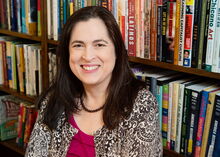
Julie Dowling, professor of Latina and Latino studies, was named by the U.S. Census Bureau to its National Advisory Committee on Racial, Ethnic and Other Populations. Dowling has done extensive research on the racial identification of Latinos in the U.S., including how regional context affects Latinos’ racial responses on the U.S. census. The national advisory committee advises the Census Bureau on a wide range of variables that affect the cost, accuracy, and implementation of its programs and surveys, including the once-a-decade census.
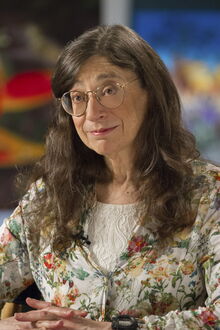
May Berenbaum, head and professor of entomology, has been awarded the National Medal of Science, the nation’s highest honor for achievement and leadership in advancing the field of science. The National Medal of Science was created in 1959 and is awarded annually to individuals who have made outstanding contributions to science and engineering.
September 2014
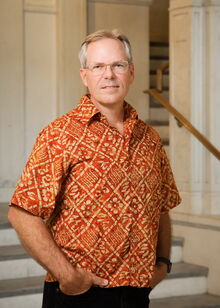
Christopher C. Fennell, a professor of anthropology, has been named a University Scholar for excellence in teaching, scholarship, and service. Fennell is an archaeologist with specializations in historical archaeology and the archaeology of the African Diaspora. He has written an award-winning book, and is a well-known speaker, lawyer, and legal scholar.
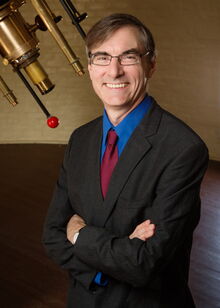
Brian D. Fields, a professor of astronomy, has been named a University Scholar for excellence in teaching, scholarship, and service. Fields is a theorist who works on nuclear and particle astrophysics. His work crosses between astronomy, nuclear physics, and geology. One of his research areas includes cosmological nucleosynthesis, the creation of the elements by nuclear reactions in the aftermath of the Big Bang.
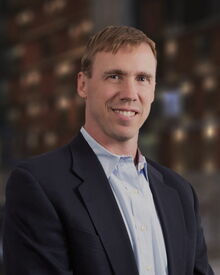
Paul J. Hergenrother, a professor of chemistry, has been named a University Scholar for excellence in teaching, scholarship, and service. Hergenrother is an expert in the molecular basis of disease. He has made significant advances in the way new medicines are discovered and developed, using readily available natural products as the starting point for complex molecule synthesis. His discoveries impact not only basic scientific research but also the lives of cancer patients.
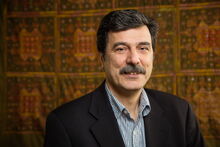
Behrooz Ghamari-Tabrizi, associate professor of history, sociology, and global studies, received a Conrad Humanities Scholar Award. These awards, funded by a gift from Arlys Conrad, are designed to support the work of exceptionally promising associate professors in humanities units within the College of Liberal Arts and Sciences, with the aim of enhancing retention of the University’s strongest scholarly leaders.
August 2014
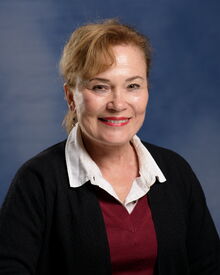
Martha Gillette, professor of cell and developmental biology, received an Early Concept Grant for Exploratory Research, awarded by the National Science Foundation to enable new technologies to better understand how complex behaviors emerge from the activity of brain circuits. The $300,000 grant enables researchers to develop a range of conceptual and physical tools.
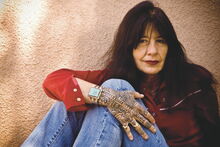
Joy Harjo, professor of American Indian studies and English, received the first Black Earth Institute Award, given to an artist who best exemplifies the goals and mission of the institute in their work and life. BEI is dedicated to having art create a more deeply connected and socially just world, protect the planet, and celebrate the human spirit in all peoples.
July 2014
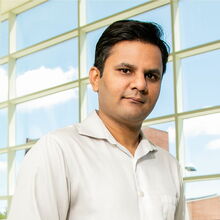
Prashant Jain, assistant professor of chemistry, has been named a recipient of the Beckman Young Investigator Award from the Arnold and Mabel Beckman Foundation. This award of $750,000 over four years is “intended to provide research support to the most promising young faculty members in the early stages of academic careers in the chemical and life sciences particularly to foster the invention of methods, instruments, and materials that will open up new avenues of research in science.” Jain received the award for his work on nanoscale imaging of catalysts in action.
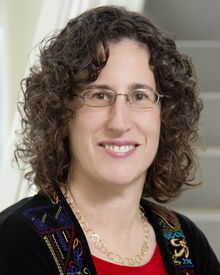
Sharon Hammes-Schiffer, Swanlund Professor of Chemistry, has been elected a member of the International Academy of Quantum Molecular Science. Her research focuses on chemical reactions in solution, in proteins, and at electrochemical surfaces, particularly the transfer of charged particles driving many chemical and biological processes.
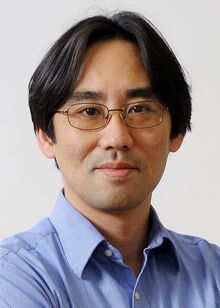
So Hirata, Alumni Research Scholar in Chemistry, has been elected a member of the International Academy of Quantum Molecular Science. His research focuses on the development of new many-body theories describing concerted motions of electrons in atoms and molecules in the gas and condensed phases and in crystalline solids.
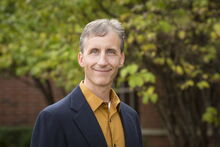
Scott Althaus, professor of political science and communication, has been selected to receive a fellowship with research support that will enable him to pursue a collaborative project with the researchers and computer technology experts at the National Center for Supercomputing Applications (NCSA). Althaus will focus on “Building a Non-Consumptive Global News Observatory for Data Science Research.”
Taras Pogorelov, research assistant professor of chemistry, has been selected to receive a fellowship with research support that will enable him to pursue a collaborative project with the researchers and computer technology experts at the National Center for Supercomputing Applications (NCSA). Pogorelov will focus on “An Open Environment for Automation of Molecular Dynamics Simulations of Membrane-Active Host Defense Peptides.”
June 2014
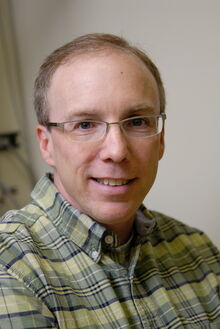
Jeffrey Moore, the Murchison-Mallory Professor of Chemistry, has been named a Howard Hughes Medical Institute (HHMI) professor. This distinction honors respected researchers who are transforming education within their fields. Moore will receive a five-year grant from HHMI. He has been instrumental in course design for organic chemistry at Illinois, using online resources and webcasts rather than traditional lectures or textbooks, and Web-based conferencing technology for live, interactive discussion sessions.
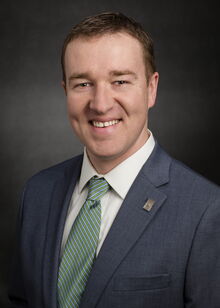
Brendan Harley, assistant professor of chemical and biomolecular engineering, received the Young Investigator Award of the Society of Biomaterials for demonstrating exceptional accomplishments in the field within 10 years of earning a doctorate. Harley’s team has focused on pioneering approaches to create biomaterials that replicate the form and function of inhomogenous structures in the body.
May 2014
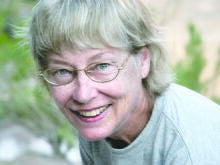
Susan Kieffer, Walgreen Chair and Center for Advanced Study Professor of Geology, will receive the 2014 Penrose Medal of the Geological Society of America. This is the highest award offered by the main society of geologists in the western hemisphere. The Penrose Medal recognizes “outstanding original contributions or achievements that mark a major advance in the science of geology.” Kieffer is the first woman ever to receive this award, which has been offered annually since 1927.
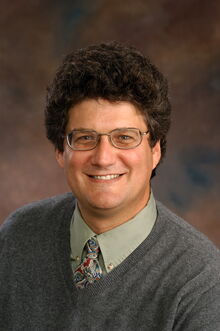
Jonathan Sweedler, the James R. Eiszner Family Chair in Chemistry and the director of the School of Chemical Sciences, won the Malcolm E. Pruitt Award from the Council for Chemical Research, in recognition of outstanding individual contributions to the progress of chemistry and chemical engineering by promotion of mutually beneficial interactions among universities, the chemical industry, and government. His research interests are in bioanalytical chemistry and he is investigating the roles that peptide hormones, neurotransmitters, and neuromodulatory agents play in behavior, learning, and memory.
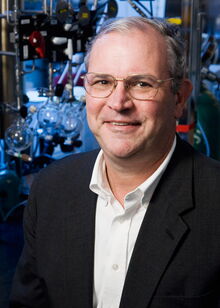
Thomas Rauchfuss, professor of chemistry, won the Ronald Nyholm Prize, given biennially by the Royal Society of Chemistry (UK) for outstanding contributions to inorganic chemistry. His research focuses on all aspects of the synthesis and reactivity of inorganic, organometallic, and main-group compounds and materials.
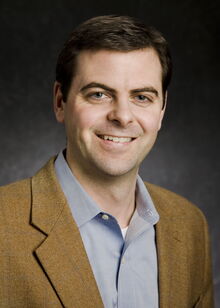
Martin Burke, associate professor of chemistry, won the 2014 Thieme IUPAC Prize in Synthetic Organic Chemistry. This prize is awarded to a scientist under 40 whose research has had a major impact in synthetic organic chemistry. Burke’s research interests in organic chemistry focus on the synthesis and study of small molecules with protein-like functions.
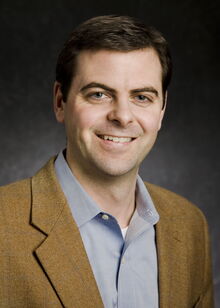
Martin Burke, associate professor of chemistry, won the 2014 Yoshimasa Hirata Gold Medal, which is sponsored by the Hirata Memorial Foundation and Nagoya University. It is awarded for excellence in synthetic organic chemistry, and the medalist gives a lecture at Nagoya University. Burke’s research interests in organic chemistry focus on the synthesis and study of small molecules with protein-like functions.
April 2014
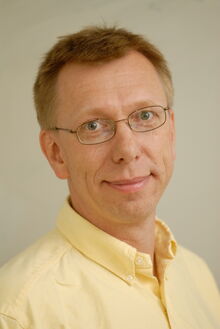
Wilfred van der Donk, the Richard E. Heckert Endowed Chair in Chemistry, has been elected to the American Academy of Arts and Sciences, one of the longest-standing honorary societies in the nation. He is a Howard Hughes Medical Institute investigator and focuses on harnessing enzyme functions for the discovery and design of new anti-inflammatory agents and antibiotics, particularly the activity and synthesis of lantibiotics and phosphonate antibiotics, with the aim of using natural synthesis pathways to find new compounds or enhance the medical properties of known compounds.
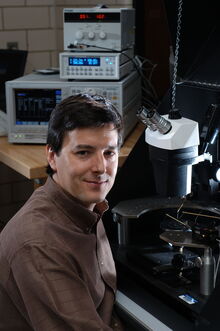
John Rogers, professor of chemistry and materials science and engineering, as well as the Swandlund Chair of Materials Science and Engineering, has been elected to the American Academy of Arts and Sciences. He has pioneered flexible, stretchable electronics, creating pliable products such as cameras with curved retinas, medical monitors in the form of temporary tattoos, a soft sock that can wrap an arrhythmic heart in electronic sensors and LED strips thin enough to be implanted directly into the brain to illuminate neural pathways. His work in photovoltaics serves as the basis for commercial modules that hold the current world record in efficiency.
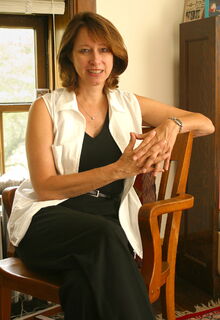
Dale Bauer, professor of English and gender and women’s studies, has been honored with the Campus Award for Excellence in Undergraduate Teaching. Her teaching endeavors to demystify the relationship between theory and practice: Students in her classes come to understand why they read the way they do, and how their writing about what they read relates to—and can challenge—conventional ways of knowing literary texts.
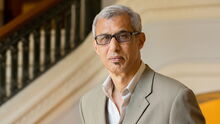
Christopher Benson, associate professor of African American studies and journalism, has been honored with the Campus Award for Excellence in Undergraduate Teaching. His students develop critical thinking skills and a keen sense of social context for the work they will undertake as professionals. His goal is to “provide a solid foundation for social responsibility and media literacy.” To achieve this, Benson teaches his students how “to provide information that is fair, accurate, balanced and contextual in order to facilitate more enlightened public choices.”
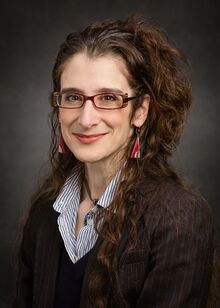
Tamara Chaplin, associate professor of history, French, and gender and women’s studies, has been awarded with the Campus Award for Excellence in Undergraduate Teaching. “A mesmerizing presence on the lecture stage,” she seeks to instill in students“the kind of insatiable hunger for learning that propels all inspired scholarship.” Her lectures and discussions continue to shape the thinking of her former students, in large part because she shows students what they are capable of. In short, Chaplin teaches her students to learn how to learn.
Donald DeCoste, a specialist in education in the department of chemistry, has been honored with the Campus Award for Excellence in Undergraduate Teaching. His goals in teaching are that students should “understand the materials at a conceptual level and understand the nature of science.” His highest compliment from a student: “I am trying to teach myself how to ask the same questions you do in a lecture, so that I don’t need you anymore.”
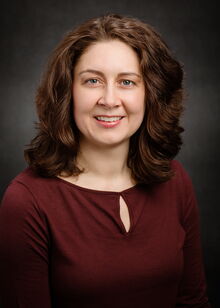
Jennifer McNeilly, instructor and director of the Merit Workshop Program in the department of mathematics, has been awarded with the Campus Award for Excellence in Undergraduate Teaching. She teaches scores of undergraduates but also trains graduate teaching assistants for undergraduate mathematics courses, leads sessions on pedagogy for math teachers around the state and has “virtually single-handedly” been responsible for the growth and achievements of the Merit Workshop Program during the past 10 years.
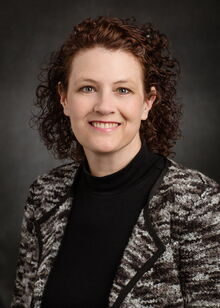
Mardia Bishop, director of public speaking instruction in the department of communication, has been awarded with the Campus Award for Excellence in Undergraduate Teaching. She manages to make public speaking manageable and enjoyable—even for those terrified of it. She has a way of bringing all students, who come from a variety of backgrounds, up to the same level, and presents the material in a way that makes her class interesting and accessible. She embodies “everything a student would want and need in a professor: intelligence, passion, and affability.”
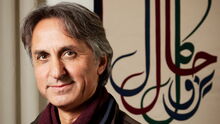
Asef Bayat, professor of sociology and the Catherine C. and Bruce A. Bastian Professor in Global and Transnational Studies, has been named a 2014 Guggenheim Fellow, among 178 North American artists, scholars, and scientists selected on the basis of achievement and exceptional promise. Bayat specializes in the study of social movements, urban politics, and political Islam in the Middle East. Bayat has been active in following the ongoing changes in the region, last year publishing an update of Life as Politics, as well as editing the book Post-Islamism: The Changing Faces of Political Islam.
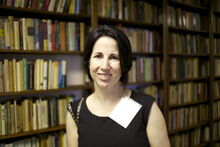
Catherine Prendergast, professor of English and an affiliate of the Russian, East European, and Eurasian Center, has been named a 2014 Guggenheim Fellow, among 178 North American artists, scholars, and scientists selected on the basis of achievement and exceptional promise. Her research is on cultural contested terrain, such as anxieties over the global spread of English, arguments over grammatical correctness, and battles over multicultural literacy in the wake of school desegregation. She will use her Guggenheim Fellowship to complete her book, Writer, Painter, Banker, Thief: The American Arts Colony in the Public Account.
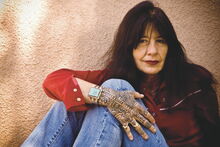
Joy Harjo, professor of American Indian studies and of English, has been named a 2014 Guggenheim Fellow, among 178 North American artists, scholars, and scientists selected on the basis of achievement and exceptional promise. Her teaching and research interests focus on indigenous literature, poetry, music, and theater. She will use her fellowship to complete her second memoir, Songline of Justice.
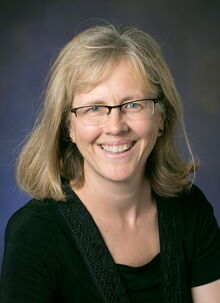
Kristin Hoganson, professor of history, has been invited to hold the Harold Vyvyan Harmsworth Visiting Professorship in American Studies at Oxford University for 2015-16. Inaugurated in 1922, the professorship has been held by many of the most eminent historians of America. Since 2001, holders of the chair have been affiliated with Queen’s College, Oxford, and the Rothermere American Institute.
Ezekiel Kalipeni, professor of geography and GIScience, African studies, and LAS global studies, received the 2014 Kwadwo Konadu-Agyemang Distinguished Scholar Award in African Geography from the Africa Specialty Group of the Association of American Geographers. This award honors him for “his proven track record of scholarship on Africa; for his dedication to the development of both the Africa Specialty Group and the African Geographical Review; and for his lifelong contribution to African Geographic scholarship.”
March 2014
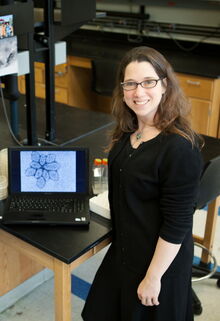
Rachel Whitaker, assistant professor of microbiology, along with her interdisciplinary, multi-institutional team, received a five-year, $2 million grant from the National Science Foundation to explore the idea of viruses and their hosts coevolving together in the lab in the model system of hot springs at Yellowstone National Park. Whitaker also plans to study microbial adaptive immunity, where a host is able to recognize infectious particles like viruses and degrade them if they are infected again.
February 2014
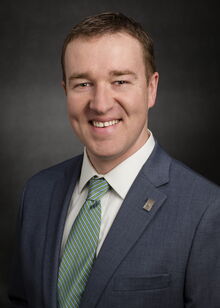
Brendan Harley, assistant professor of chemical and biomolecular engineering, received the Everitt Award for Teaching Excellence for development of an innovative elective course on tissue engineering. The Everitt Award annually recognizes one engineering faculty member for outstanding undergraduate teaching and is selected by students from the Engineering Council.
Chris Rao, assistant professor of chemical and biomolecular engineering, received the College of Engineering Dean’s Excellence in Research Award for his research on topics such as infectious disease, bioenergy production, and synthetic biology. The prestigious award is given annually to four assistant professors in the College of Engineering, in recognition of their outstanding research conducted during the previous year.
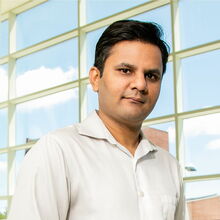
Prashant Jain, assistant professor of chemistry, is one of three Illinois faculty to receive a 2014 Sloan Research Fellowship from the Alfred P. Sloan Foundation. Fellows receive $50,000 to pursue their choice of research topics, with flexibility in applying funds toward their research. Jain investigates the unique behavior of electrons, photons, and atoms in nanoscale materials.
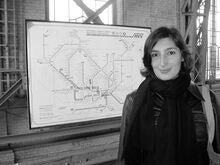
Yasemin Yildiz, associate professor of Germanic languages and literatures and gender and women’s studies, received honorable mention for the 2014 Laura Shannon Prize for Contemporary European Studies, for her book Beyond the Mother Tongue: The Postmonolingual Condition.
January 2014
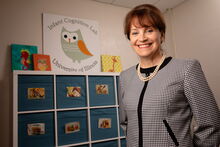
Renee Baillargeon, professor of psychology, received the 2013 Fyssen Foundation International Prize for contributing so widely to knowledge on the theme “Human Cognitive Development.” Baillargeon’s research focuses on early conceptual development in three core domains: physical reasoning, psychological reasoning, and biological reasoning. Top of page
-->
December 2013
James R. Brennan, professor of history, has won the 2013 Bethwell A. Ogot Book Prize, awarded by the African Studies Association for the best book on East African studies published the previous year. His book Taifa: Making Nation and Race in Urban Tanzania was published by Ohio University Press in 2012.
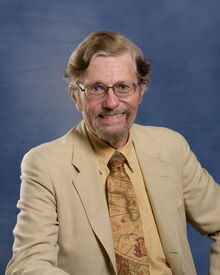
Ralph W. Mathisen, professor of history, and the editor of the Journal of Late Antiquity, has received the 2013 Codex Award for the journal. The award is given by the Council of Editors of Learned Journals for distinction within all disciplines and areas of the world covered in the ancient and medieval periods.
November 2013
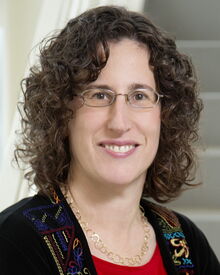
Sharon Hammes-Schiffer a Swanlund Professor of Chemistry, has been named a fellow of the American Association for the Advancement of Science, recognized for “scientifically or socially distinguished efforts to advance science or its applications.” Her research focuses on chemical reactions in solution, in proteins, and at electrochemical interfaces, and has applications in catalyst design for solar cells, understanding how enzymes work, protein engineering, and drug design.
October 2013
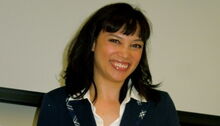
Lisa Marie Cacho, associate professor of Latina/Latino studies, English, Asian American studies, and gender and women’s studies, was recently awarded the 2013 John Hope Franklin Publication Prize by the American Studies Association. The award, which recognizes the “best book in American studies,” was given for her first book, Social Death: Racialized Rightlessness and the Criminalization of the Unprotected (NYU Press, 2012).
Feisal Mohamed, professor of English, was awarded the Milton Society of America’s Irene Samuel Memorial Award, the highest honor from the society for a collection of essays, for his co-edited collection Milton and Questions of History (2012). This is the second consecutive year that he has received an award from the MSA.
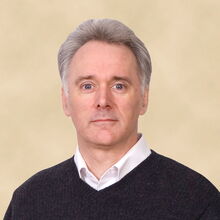
Gregory S. Girolami, professor and head of chemistry, was named to the American Chemical Society’s 2013 Class of Fellows, an honor bestowed upon distinguished scientists. The fellows program, established by the ACS board of directors in 2008, recognizes ACS members for outstanding achievements in and contributions to science, the profession, and the society.
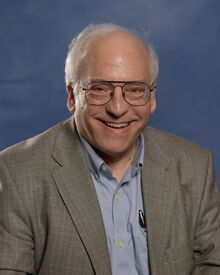
Alex Scheeline, professor emeritus of chemistry, is a co-winner of this year’s FACSS Innovation Award, given by the Federation of Analytical Chemistry and Spectroscopy Societies. This is a juried prize awarded to the most innovative, creative, and outstanding work that is making its world debut at a FACSS conference. Scheeline and co-author, Bui Anh Thu, from Vietnam National University of Science in Hanoi, won for the innovative use of CMOS cameras in cellphones to perform absorption, reflection, and fluorescence spectroscopy.
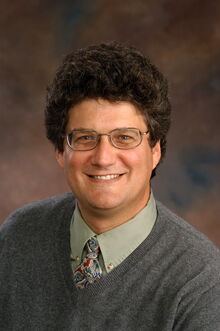
Jonathan Sweedler, the Lycan Professor of Chemistry and the director of the School of Chemical Sciences, won the ACS Award in Analytical Chemistry. The award recognizes “outstanding contributions to the science of analytical chemistry, pure or applied, carried out in the United States or Canada” and recognizes Sweedler’s pioneering development of methods to detect extraordinarily small quantities of neurotransmitters.
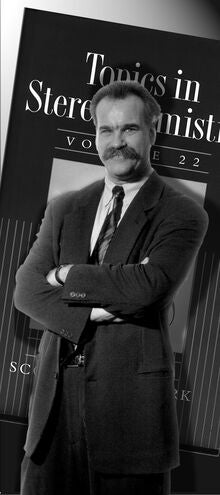
Scott Denmark, the R.C. Fuson Professor of Chemistry, won the ACS Frederic Stanley Kipping Award in Silicon Chemistry. This award recognizes “distinguished contributions to the field of silicon chemistry.” Denmark has made several important discoveries related to silicon chemistry, including palladium catalyzed cross-coupling with organosilicon compounds, enantioselective carbonyl addition reactions, and other steroselective reactions involving silicon-carbon bonds.
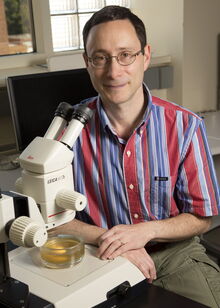
Phillip A. Newmark, a professor of cell and developmental biology in the School of Molecular and Cellular Biology, along with Bo Wang, a postdoctoral research associate with the Institute for Genomic Biology, were recognized in a recent Bio-Art competition sponsored by the Federation of American Societies for Experimental Biology. Their winning image shows a tissue section of a developing Schistosoma mansoni larva living inside the muscular tentacle of its snail host.